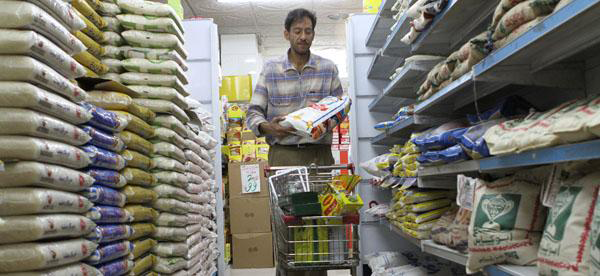AMMAN — Russia's recent decision to ban rice and rice grits exports until the end of 2023 will not impact Jordan, as it has a limited dependency on Russian rice imports, Jamal Amro, representative of the food sector at the Jordan Chamber of Commerce (JCC), said on Saturday.
"Jordan's rice imports from the Russian market are relatively modest," Amro said. "This was the case even before the export ban came into effect in mid-2022."
Jordan imported 4,000 tonnes of rice from Russia in 2020, 11,000 tonnes in 2021 and 8,000 tonnes by mid-2022, he added.
Jordan has diversified its rice import sources to avoid being dependent on a single country, Amro stressed, adding Jordan has explored numerous alternative sources of medium-grain rice.
The Kingdom's medium, long-grain and basmati rice imports totalled 230,000 tonnes last year. Jordan's consumption of rice of all categories is around 150,000 tonnes annually, with the remaining quantities serving as stocks for importers and rice traders, he said.
Around 70 per cent of the country's rice consumption is of the medium grain variety, which is mainly imported from the US and various European countries, Amro added.
In an effort to preserve stability in the Russian market, the Russian government on Saturday announced an extension of its ban on the export of rice and rice grits through the end of the year.
